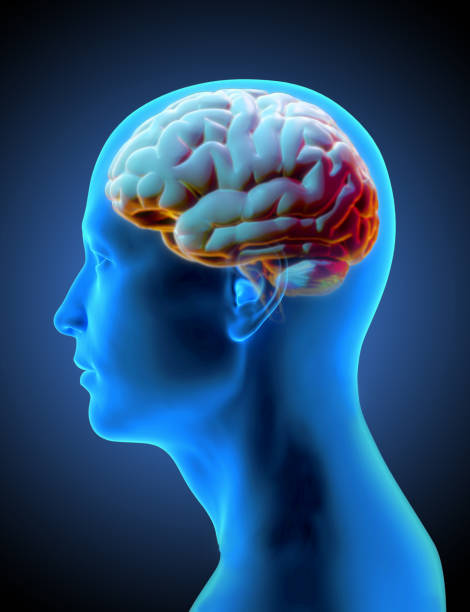The idea of hacking human memory evokes images of science fiction worlds where minds are programmable, and past experiences can be edited with the precision of software. From the flickering screens of dystopian films to the bold claims of popular neuroscience magazines, the notion of controlling memory is tantalizing. Memory, after all, is the very essence of who we are. It shapes our identities, our decisions, and our emotional lives. To imagine that it could be manipulated, enhanced, or rewritten challenges our deepest intuitions about the self. But beyond fiction, science is beginning to probe whether human memory is, at some level, hackable. The question is not merely technological—it is philosophical, ethical, and profoundly human.
The Architecture of Memory
To understand the prospect of hacking memory, one must first understand its architecture. Memory is not a single, monolithic entity stored in a neat folder in the brain. Instead, it is a dynamic network of neurons, synapses, and molecular processes. Neuroscientists distinguish several types of memory: sensory, short-term, working, and long-term, each with its own mechanisms and brain regions.
Short-term memory, or working memory, is akin to a whiteboard in the mind. It temporarily holds information, like a phone number or a line from a poem, allowing us to manipulate it before it fades. Long-term memory, by contrast, is more like a vast, complex library, with certain regions dedicated to different types of content. The hippocampus plays a central role in consolidating episodic memories—those detailed snapshots of life events—while the prefrontal cortex contributes to organization, planning, and retrieval. Procedural memories, such as riding a bicycle or playing a musical instrument, rely heavily on the basal ganglia and cerebellum.
At the microscopic level, memory is the product of synaptic plasticity. Connections between neurons strengthen or weaken based on experience, creating what neuroscientists call engrams, the physical traces of memory. These engrams are not static. They can degrade, be reshaped, or be reactivated, making memory an inherently malleable system. It is this malleability that opens the door—both ethically and technologically—to the possibility of hacking memory.
Memory as a Reconstructive Process
Unlike a computer, which stores data in fixed locations, human memory is reconstructive. Each time we recall an event, the brain reactivates neural networks that were engaged during the original experience. This reactivation is not a perfect playback; it is an act of reconstruction, influenced by context, mood, and subsequent experiences. Memories can shift subtly, merge with other memories, or even adopt entirely false details.
This inherent reconstructive nature makes memory simultaneously fragile and flexible. It explains why eyewitness testimonies are often unreliable and why traumatic memories can be distorted over time. But it also suggests a potential avenue for targeted manipulation. If memories can be reassembled, perhaps they can be modified, strengthened, or even selectively suppressed.
Experimental Approaches to Memory Manipulation
Modern neuroscience has already begun experimenting with ways to influence memory in controlled settings. Techniques range from pharmacological interventions to sophisticated neural stimulation methods.
Pharmacologically, certain drugs have been shown to affect memory consolidation and reconsolidation. For example, beta-blockers, typically used for heart conditions, can reduce the emotional intensity of memories when administered shortly after a traumatic event. In experimental contexts, this has raised the possibility of attenuating the psychological impact of trauma, offering hope for those suffering from conditions like post-traumatic stress disorder (PTSD).
Optogenetics, a technique developed over the past two decades, allows researchers to manipulate specific neurons with light. In rodent studies, scientists have successfully activated or silenced engrams corresponding to particular memories. Mice, for instance, have been made to recall fearful or pleasurable experiences on command, revealing the underlying neural circuitry of memory in astonishing detail. While human applications remain speculative and ethically fraught, these experiments demonstrate that memory is not inviolable. It is a biological process that can be precisely targeted under the right conditions.
Transcranial magnetic stimulation (TMS) and transcranial direct current stimulation (tDCS) represent less invasive approaches. By applying electrical or magnetic fields to specific regions of the brain, researchers can modulate neural activity, subtly enhancing memory recall or, in some cases, impairing certain memory functions temporarily. While these interventions lack the specificity of optogenetics, they suggest that external technologies can interact with human memory in ways once thought impossible.
The Ethics of Memory Hacking
With the technical feasibility of memory manipulation comes a profound ethical dilemma. Memory is deeply tied to identity, personal responsibility, and moral agency. If memories can be altered, questions arise about authenticity and autonomy. Would a person remain themselves if key memories were changed? Could memory hacking be used coercively, to erase inconvenient truths or implant false narratives?
Consider, for example, the treatment of trauma. Reducing the emotional intensity of a memory may relieve suffering, but it may also alter the lessons learned from an experience, potentially affecting behavior and relationships. Similarly, enhancing memory pharmacologically or electronically could create inequalities, privileging those with access to memory-enhancing technologies. These ethical considerations underscore that hacking memory is not merely a scientific challenge—it is a societal one.
Memory, Identity, and Consciousness
Memory is inseparable from identity. Our sense of self emerges from the continuity of experience—the stories we tell ourselves about who we are. Altering memory, therefore, is not akin to changing a file on a computer; it is more like rewriting the narrative of one’s life. Even minor adjustments can ripple outward, affecting personality, preferences, and emotional responses.
Philosophers have long debated the link between memory and consciousness. Some argue that the self is nothing more than a collection of memories, a pattern of neural activity that persists over time. Others contend that consciousness is more than the sum of recollections, rooted instead in ongoing awareness and subjective experience. Either way, the possibility of memory hacking forces us to confront deep questions: what does it mean to remain oneself if one’s memories can be altered at will?
The Risks of Oversimplifying Memory
It is tempting to imagine that memory could be hacked with the same logic used to manipulate computer data. Computers store information in discrete bits, with precise read/write operations. Human memory, by contrast, is messy, distributed, and context-dependent. Attempting to impose a digital model onto the brain risks misunderstanding its complexity.
Memories are intertwined with emotion, sensory experience, and social context. Modifying one memory can inadvertently alter others, creating unpredictable outcomes. Moreover, memory is not purely cerebral; it is embodied. Physiological states, hormonal fluctuations, and environmental cues all influence recall. Hacking memory, therefore, is far more than a technical challenge—it is a venture into a system of staggering biological and psychological complexity.
Memory Enhancement and Cognitive Augmentation
While erasing or rewriting memories evokes ethical controversy, memory enhancement is another frontier. Researchers are exploring ways to strengthen memory consolidation, improve recall, and even accelerate learning. Nootropics, drugs designed to enhance cognitive performance, have shown modest effects on memory in humans, while experimental techniques such as TMS and tDCS offer non-pharmacological approaches.
In parallel, brain-computer interfaces (BCIs) are being developed that could, in theory, support memory augmentation. By linking neural activity to external devices, BCIs could allow the storage, retrieval, or reinforcement of information beyond the limits of biological memory. This approach raises profound questions: could humans eventually extend their cognitive capacities to rival artificial systems? And if so, what would it mean to blur the line between natural and artificial memory?
The Psychological Implications
Memory is not merely a repository of information—it is intimately tied to emotion, learning, and mental health. Altering memory, even with the best intentions, carries psychological consequences. Removing traumatic memories might reduce distress but could also impair coping mechanisms. Enhancing recall could improve performance but intensify anxiety or obsessive rumination.
Moreover, our memory biases—the distortions, confabulations, and selective recollections—serve adaptive purposes. Forgetting is essential for mental flexibility and emotional resilience. Attempting to perfect memory risks undermining these adaptive mechanisms, creating a mind that is technically more accurate but psychologically less resilient.
The Future of Memory Hacking
The horizon of memory manipulation is both thrilling and terrifying. Advances in genetics, molecular biology, neuroengineering, and artificial intelligence may one day allow interventions that are precise, targeted, and personalized. Techniques could range from pharmacological modulation of synaptic plasticity to gene editing that enhances memory-related proteins, to sophisticated brain-computer interfaces capable of storing and recalling memories externally.
Yet the future is not inevitable. Memory hacking confronts not only technical barriers but social, ethical, and philosophical ones. How society chooses to regulate and integrate these technologies will determine whether they serve human flourishing or become instruments of control.
Memory and the Essence of Being Human
Ultimately, hacking human memory is not just a scientific question—it is a meditation on what it means to be human. Memory is the thread that weaves our experiences into narrative, shapes our choices, and binds us to others. It is the repository of joy, sorrow, triumph, and failure. To tamper with it is to engage with the very fabric of identity.
Science may one day allow us to manipulate memories with precision, yet the decision to do so will remain profoundly human. It will force us to balance the promise of relief, enhancement, and discovery against the risks of losing authenticity, autonomy, and moral grounding. In exploring the possibilities of memory hacking, we are confronted not only with the architecture of the brain but with the architecture of the self.
Memory is not a hard drive to be rewritten. It is a living, breathing testament to our experiences, a symphony of neurons and synapses shaped by time, emotion, and circumstance. To hack it is to enter the most intimate realm of human existence. And while science may illuminate the pathways, the choice of whether—or how—to traverse them belongs to us, the bearers of memory and the stewards of our own identity.






